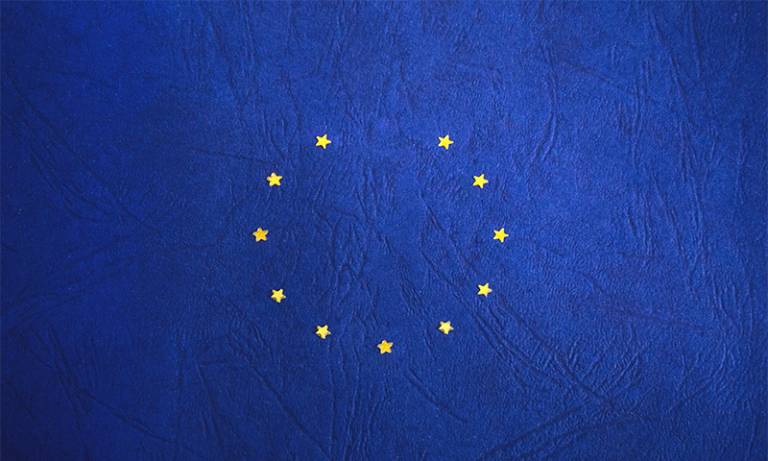An Accidental Brexit?
06 December 2017, 5:30 pm–8:00 pm

This discussion will draw on a recent eponymous book by German economist Paul J.J. Welfens, which analyses how the EU referendum in the United Kingdom came to pass and what the foreseeable consequences are for the UK, Europe, US and world economy.
Event Information
Open to
- All
Availability
- Yes
Organiser
-
UCL Institute for Sustainable Resources
Location
-
G01 University College London Central House 14 Upper Woburn Place
The discussion will touch on questions of public opinion-formation and the use of (mis)information in campaigning as seen by an external observer. It will also consider to what extent Brexit is likely to weaken the EU and shift the global balance of power in a globalised economy increasingly shaped by Asia and digital innovations.
Speaker
Paul J.J. Welfens, Jean Monnet Professor for European Economic Integration, Chair for Macroeconomics at the Schumpeter School of Business and Economics, and President of the European Institute for International Economic Relations at the University of Wuppertal, Germany. He is Research Fellow at IZA, Germany, and Non-Resident Senior Research Fellow at AICGS/John Hopkins University, USA.
Discussants
Paul Ekins has a Ph.D. in economics from the University of London and is Professor of Resources and Environmental Policy at and Director of the UCL Institute for Sustainable Resources, University College London (UCL). He is also Deputy Director of the UK Energy Research Centre, and the UKERC Co-Director leading on its Energy Resources theme.
Dr Andrew Glencross is a Senior Lecturer in Politics and International Relations at Aston University whose research focuses on European integration and international relations theory. He holds a Ph.D. from the European University Institute in Florence and has previously taught at the Universities of Pennsylvania, Aberdeen, and Stirling.
Chair
Dr Claudia Sternberg is Senior Research Associate at the UCL European Institute. A scholar of European and international politics, she is particularly interested in political power or authority, and the role that ideas, ideologies, and stories can play in shaping the relationships between citizens, peoples, and their states or international organisations.
 Close
Close

